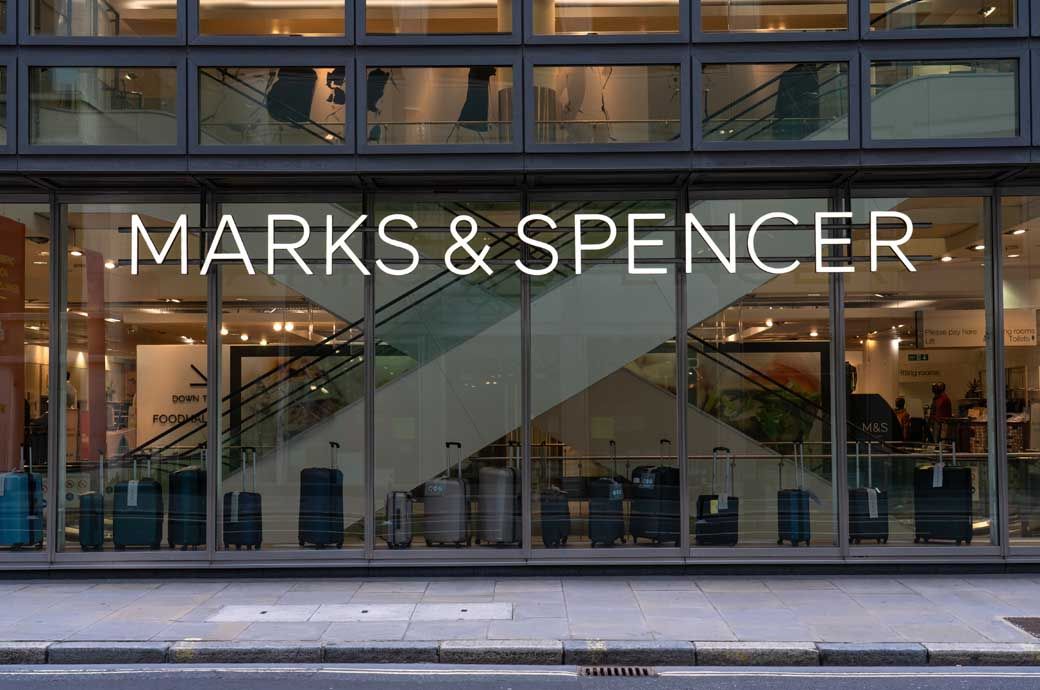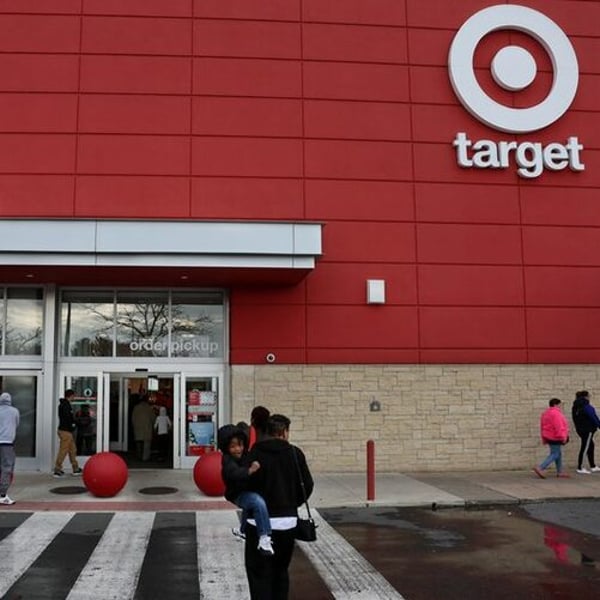Introduced as part of its ambition to be the most trusted retailer, M&S' industry-leading, fully integrated sustainability plan, 'Plan A', was an innovation in itself when it was launched in 2007, long before most. of major companies will think about sustainability.
Driven by an obsession with quality and innovation, everything at M&S starts with an exceptional product, sourced and crafted with care to be of the highest quality and simply too good to waste.
Marks & Spencer's sustainability campaign includes initiatives such as changes to cow diets to reduce methane and AI for energy efficiency. Its focus on innovation ensures quality and trust while leading environmental efforts. Marks & Spencer is committed to reaching Net Zero by 2040 with recycling, technology and water projects, engaging suppliers and consumers to create impact.
The retailer has been leading the way with new and exciting products and services since its inception 140 years ago and continues to innovate without ever compromising on quality or sourcing and production standards. The first major retailer to bring fresh chicken to UK shelves, the first to introduce machine washable wool to its clothing offering, easy growth hems to its market-leading school uniform and, most recently, the M&S Food tripe x Zoe, who has quickly become a top. sale of healthy eating products. The brand is also the first and only retailer to sell only RSPCA assured milk and higher welfare fresh chicken, since 2017 and 2023 respectively.
Today, M&S aims to become a net-zero emissions business across its operations and entire value chain by 2040. The brand's strength in supplier partnerships and innovation positions it well to drive major changes through collaboration with suppliers and partners, recognizing that no one can achieve net zero emissions alone.
M&S today announces a £1 million investment in a change to the diet of pasture-grazing cows in its milk stock to reduce the amount of methane produced in a cow's stomach and released into the atmosphere. Working with M&S's 40 select dairy farmers in its exclusive milk group, this pioneering initiative in the UK market will remove around 11,000 tonnes of greenhouse gas emissions from the atmosphere each year, reducing the carbon footprint by 8.4 tonnes. carbon from M&S RSPCA-guaranteed fresh milk. %. As always, there are no compromises on taste or quality and the brand continues to deliver on its strong 25-year commitment to milk, pledging to pay farmers a fair price for the milk they produce.
The retailer has also launched a £1m Plan A Accelerator Fund and is now working in partnership with new and long-standing suppliers to take rapid action towards net zero through a series of innovation projects.
Stuart Machin, CEO of M&S commented: “I talk a lot about the 'magic of M&S', and a key part of this is our commitment to innovation. It's in our DNA and, along with our unique own-brand model and long-term supplier partnerships, it's how we deliver the quality and trust our customers expect from us.
“By pivoting our innovation obsession toward climate change and harnessing the entrepreneurial spirit of our suppliers, we can fuel our drive to be a Net Zero business across all our operations and across the supply chain by 2040. I am excited about the great difference. “These small changes could contribute to some of the toughest climate challenges we face.”
M&S's Food, Clothing and Home and Retail teams have worked closely with suppliers and trading partners to identify innovative opportunities in some of the most challenging emissions areas, including agriculture, livestock and textiles.
One of the first projects supported by the fund is a first-of-its-kind trial1 in which customers are asked to donate their unwearable clothing, as well as wearable clothing, to Oxfam. These unusable items will be cleaned and used to support fiber-to-fiber recycling, where fibers are reused and turned into new materials, keeping them out of landfills and moving us closer to a more circular fashion economy.
Elsewhere in the business, a new test will use AI data to predict a store's optimal heating, ventilation and air conditioning controls to reduce energy consumption. Tested in six stores, the goal is to reduce HVAC costs by up to 30%. When implemented across the entire M&S estate, this could save approximately 2,000 tonnes of carbon and around £3m a year.
More projects will be announced in the coming months, but some of the initiatives will focus on:
- Energy: Produce green hydrogen through electrolysis technology using farm-generated wind/solar energy to replace fossil fuels and pasteurization using heat pumps and renewable electricity.
- Recycling: Introducing Polytag technology in food products to better understand how much, when and where our branded single-use plastic is recycled at UK recycling centres. On the other hand, in our Clothing and Home business, we are testing the viability of footwear recycling.
- Technology: Use new agricultural technology to produce a field of Net Zero root crops with a no-till approach and using low-carbon fertilizers, biological controls, and autonomous farm vehicles and drones.
- Water: Apply innovative solutions to water in irrigation systems such as nanobubble technology (water with increased oxygen) and organic components, to conserve water resources in the production of fruits and brassicas in water-scarce regions.
This year the retailer has also been first to market by investing in a new exclusive green fertilizer available to all its M&S Select Dairy Farms and a collaboration with a British supplier to bring a new paper fiber cup and lid to all its M&S Cafés that can be easily Recycled with paper at home or on the go. In M&S's latest Goodmove sportswear collection, more than 80% of the polyester was recycled from plastic bottle waste, avoiding unnecessary extraction of new raw materials and moving towards a more circular economy. The retailer also launched its Pathway Farming partnership with a select number of M&S Select Beef Farmers to identify opportunities to reduce carbon emissions from beef farming, such as changing feed or more efficient use of fuel and fertilizers, to be increasingly efficient.
Note: The content of this press release has not been edited by Fibre2Fashion staff.
Fiber2Fashion News Desk (RM)












